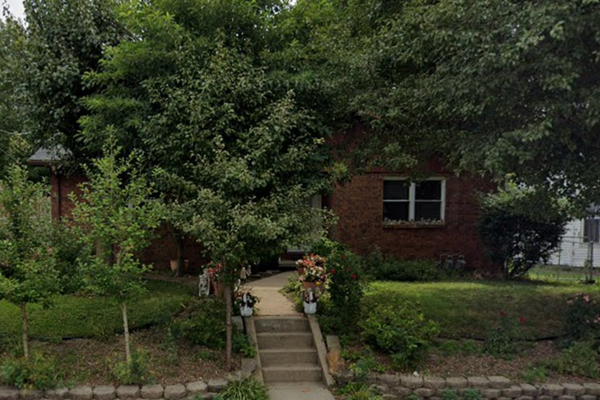
The Albanese government has abandoned a controversial high court case that sought to restore the commonwealth’s power to deport Aboriginal non-citizens.
The decision by the attorney general, Mark Dreyfus, guarantees that a dozen Aboriginal non-citizens at risk of deportation will be able to stay in Australia, and ends the former Coalition government’s attempt to overturn the landmark precedent of Love and Thoms.
In February 2020, the high court ruled that Aboriginal people cannot be aliens, putting them beyond the reach of the immigration minister’s powers to detain and deport non-citizens.
But in October 2021, Guardian Australia revealed the Morrison government was attempting to use the case of Shayne Montgomery, a New Zealand citizen culturally adopted as Aboriginal, to overturn that precedent.
In November last year, the federal court ordered Montgomery to be released from immigration detention, sparking a commonwealth appeal to the high court which was heard in April. The court reserved its decision at that time.
But on Thursday, the commonwealth appellants, including the immigration minister, filed a notice of discontinuance with the high court.
A spokesperson for Dreyfus said a delegate for the immigration minister, Andrew Giles, had revoked the cancellation of Montgomery’s visa.
“As a consequence of that decision the commonwealth has discontinued its appeal to the high court,” they said.
“The previous government brought the appeal in Montgomery to the high court in order to seek to overturn the high court’s previous decision in Love and Thoms. Love and Thoms has been the law of the land for more than two years now and the Albanese government will not seek to overturn [it].”
Arti Chetty, special counsel at Russell Kennedy Lawyers which acted for Montgomery, said her client had “lost years of his life fighting to remain with his children, his family, including his parents and siblings, and his community”.
“We are incredibly relieved for him that this ordeal is over,” she said.
The law firm said in a statement: “Importantly, the high court’s landmark decision in Love and Thoms stands and will remain undisturbed so Aboriginal and Torres Strait Islander peoples cannot be deported from their own country.”
In opposition, the then shadow home affairs minister Kristina Keneally said the Coalition “should abide by the high court’s ruling” in Love and Thoms, but Labor did not specifically commit to withdrawing the Montgomery case, prompting months of doubt about the future of a dozen Aboriginal non-citizens released as a result of the original decision.
Montgomery is a New Zealand citizen culturally adopted as Aboriginal who had asked the Love and Thoms precedent to be extended to those without an Indigenous biological ancestor.
Montgomery was convicted of a non-violent aggravated burglary in March 2018, after which the Australian government cancelled his visa. He was taken to immigration detention after his release from prison in February 2019.
Montgomery’s evidence of his Aboriginality includes his initiation on Stradbroke Island; being recognised by a Mununjali woman, Gamma Merle, and her family as their “son”; his feeling of belonging and that his “spirit guides and ancestors are Aboriginal” – and the commonwealth’s acceptance of his claim for Abstudy.
In November, the federal court ordered Montgomery to be released from immigration detention, finding it was “not reasonable” for his detaining officer to conclude he was not Aboriginal, despite the lack of a biological ancestor.
Montgomery has five children, three of who are minors, including a daughter, Wyntah-Willow, who the federal court heard would be effectively orphaned if Montgomery was deported to New Zealand.
Uncle Desmond Sandy told Guardian Australia that Montgomery, married to one of his nieces, was taken to Stradbroke Island and initiated by an elder.
“It goes way back, he was adopted; he’s part of us.”
Shaun Davies, an Aboriginal activist, native title claimant and Yugambeh man – a society that includes the Mununjali clan – said he was “very pleased” the Albanese government had pulled the case.
Davies had feared that “whatever was going to come down from the court would have been detrimental to voice and treaty”. In particular, Aboriginal Australians had feared a ruling that you “had to be biologically descended” from an Indigenous person, he said.
The Maurice Blackburn senior associate Claire Gibbs, who acted for Love and Thoms, commended the decision to drop the appeal, accusing the Morrison government of having “shamefully” tried to overturn the landmark precedent.
“It was an historic case that also sought to hold the former federal government to account for unlawfully detaining Aboriginal Australians in immigration detention – something that should never have happened in our country,” she said.
“If that appeal had been successful it would have meant the important findings of the Love Thoms case risked being overturned, again placing Aboriginal Australians at risk of deportation.”
Among the 12 people released from detention imperilled by the appeal was Jack Hobson, a New Zealand citizen who is both descended from an Aboriginal woman and recognised by the Darug people.
Hobson, who was never charged or convicted of a crime, had his visa cancelled because he was suspected of being a member of a bikie gang, which he denied.
In June, Hobson told Guardian Australia immigration detention was an “awful place” designed to “break your spirit”.
After Thursday’s decision, Hobson said it felt like “something has come off my shoulders”.
Hobson, who has applied for citizenship by descent, said “because they’ve pulled the Montgomery case we’ve got a good chance of not being deported”. “I’m happy, I’m relieved. Hopefully, I can move on to a better life and not have to look over my shoulder.”
The Morrison government’s attempt to overturn Love and Thoms was opposed by the Victorian government, the Australian Human Rights Commission, the Northern Land Council, and the National Native Title Council.
In June, the Greens senator Lidia Thorpe and legal academic Eddie Cubillo urged the Albanese government to withdraw the case.







